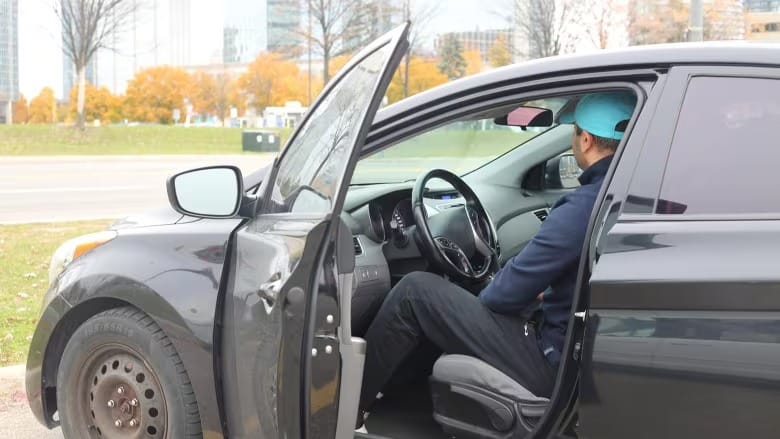Asylum seeker living in car after being evicted from government-funded hotel room
Given 3 days to leave for alleged violations in midst of nationwide housing crisis

Inside a vehicle packed with personal belongings, it’s clear that someone has been using it as a makeshift home. Shirts hang on hooks by the passenger seat, and in the back, a blanket, pillow, and eye mask hint at attempts to create a sleeping space. This car has been shelter to an asylum seeker, who, following his recent eviction from government-leased accommodation, has had to find refuge wherever he can. As he awaits his refugee hearing, he fears returning to his home country due to safety concerns and wishes to remain anonymous to avoid jeopardizing his situation.
"It's very difficult. It's very cold at night," he explained. "Sometimes, I don’t have a place to go to the washroom, to change my clothes." His predicament is shared by many asylum seekers in Canada, who face stringent accommodation rules by Immigration, Refugees and Citizenship Canada (IRCC). These policies, designed to maintain order and safety in government-provided hotels, can result in sudden eviction if certain rules are violated. Individuals receiving eviction notices often face few options amid the country’s ongoing housing crisis.
The asylum seeker, who arrived in Canada via Roxham Road — an unofficial crossing point into Quebec — has spent over two years trying to settle. However, after a disagreement with a roommate, he was told he had three days to vacate the hotel. A document viewed by reporters listed reasons for the eviction as missing a meeting with an IRCC representative and allegations of "aggressive" behavior, though he claims he simply mixed up the meeting time and denies any aggression.
In a statement, the IRCC explained that eviction notices, particularly for aggressive behavior, are given on short notice due to safety concerns, though such cases are rare. The man’s former roommate also confirmed they had a dispute but stated that he had never seen physical aggression from the asylum seeker. The short notice is especially concerning given the lack of affordable housing, leading some asylum seekers to live in shelters or on the streets, sometimes with fatal consequences.
While the Canadian government has aimed to accommodate asylum seekers since the pandemic began in 2020, many are still residing in hotels due to limited shelter capacity. As of early 2024, IRCC was leasing rooms in numerous hotels across several provinces, with roughly 7,800 refugee claimants in temporary accommodation. However, advocates argue that the housing situation is far from ideal. Toronto lawyer Robert Israel Blanshay and other critics have highlighted Canada’s struggle to meet the needs of newcomers, which, in their view, reflects poorly on a country known for its wealth and resources.
Greg Cook, an outreach worker, criticized the IRCC's strict rules, calling them "demeaning" and noting that unlike traditional tenants, asylum seekers lack basic rights under tenant protection laws. Syed Hussan, from the Migrant Workers Alliance for Change, echoed the sentiment, urging government support to help asylum seekers avoid precarious situations like sleeping in cars or on the streets.
After weeks spent in parking lots, the asylum seeker has finally found a place to stay through the generosity of a community member. However, he plans to keep his hardships a secret from his family abroad: “I can't say that to my mom or father or my wife, my children. No. It will make them very sad.”





